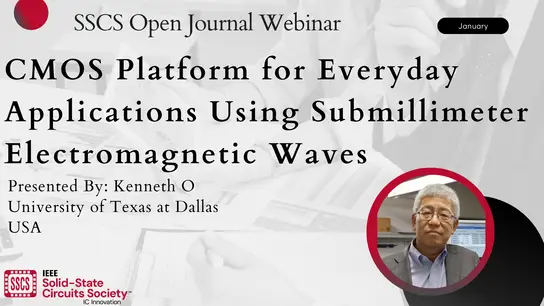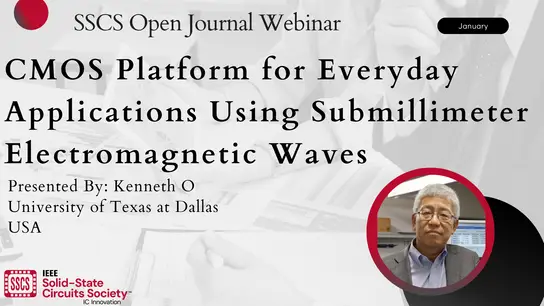-
Members: FreeSSCS
IEEE Members: $8.00
Non-members: $12.00Pages/Slides: 78
22 Nov 2019
Abstract- Jitter refers to deviation from ideal timing in clock and data transitions. In wireline communications, jitter reduces the timing margin available for clock and data recovery circuits and poses significant challenges to signal integrity as the data rates march towards 100Gb/s/lane and beyond. In this talk, we first review the basic definitions of jitter and its properties, the relationship between jitter and phase noise, and the effects of jitter on CDR and other building blocks of a wireline system. We then describe the concept of jitter transfer, jitter generation, and jitter tolerance curves, and the methods of characterizing, modeling, and simulating jitter. Finally, we present some recent works on jitter measurement and jitter mitigation techniques that are used to optimize the link performance.
Bio- Ali Sheikholeslami has been a professor at the University of Toronto, Canada, since 1999. His research interests are jitter, analog and digital integrated circuits, high-speed signaling, and memory design. He has published over 70 journal and conference articles including several on jitter. He has served as the ISSCC Education Chair since 2013, and as a member of its wireline committee from 2007 to 2013. Since 2016, he has been the Education Chair and the Distinguished Lecturer Program Chair for the Solid-State Circuits Society. Prof. Sheikholeslami has received numerous teaching awards from the Faculty of Applied Science and Engineering at the University of Toronto. He is a co-author of a book entitled Understanding Jitter and Phase Noise, published by Cambridge University Press.
Bio- Ali Sheikholeslami has been a professor at the University of Toronto, Canada, since 1999. His research interests are jitter, analog and digital integrated circuits, high-speed signaling, and memory design. He has published over 70 journal and conference articles including several on jitter. He has served as the ISSCC Education Chair since 2013, and as a member of its wireline committee from 2007 to 2013. Since 2016, he has been the Education Chair and the Distinguished Lecturer Program Chair for the Solid-State Circuits Society. Prof. Sheikholeslami has received numerous teaching awards from the Faculty of Applied Science and Engineering at the University of Toronto. He is a co-author of a book entitled Understanding Jitter and Phase Noise, published by Cambridge University Press.
Primary Committee:
SSCS


